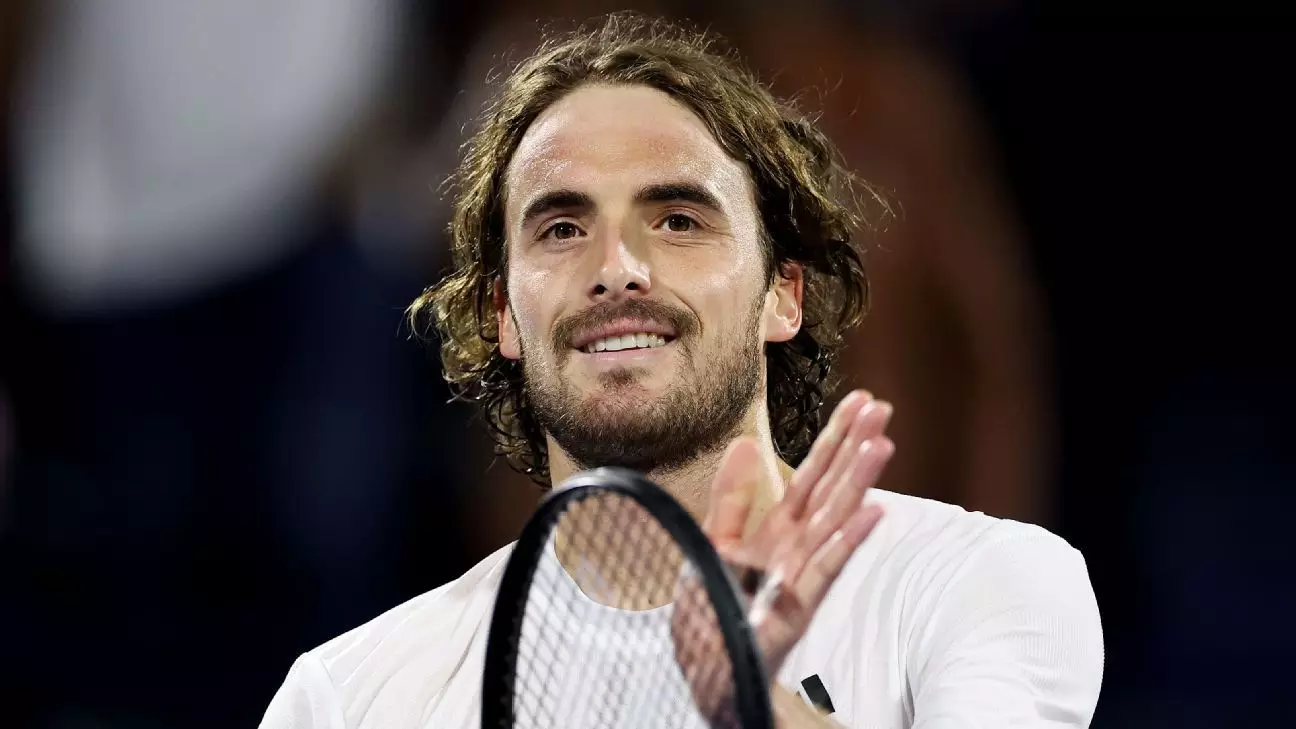In the high-stakes world of professional tennis, resilience often means knowing when to pivot. Stefanos Tsitsipas’s decision to rehire his father, Apostolos, as his coach signals a deeper understanding of his needs for stability and authenticity in his game. After a brief yet tumultuous partnership with Goran Ivanisevic, a titan whose resume boasts nine Grand Slam titles with Novak Djokovic, Tsitsipas appears to be recalibrating his approach. This move does not just reflect a tactical adjustment but an affirmation that sometimes, the most powerful form of growth is rooted in returning to one’s origins. It’s a bold statement: that true progress often requires reconnection with what truly grounds us.
The Burden of Expectations and Self-Reflection
Tsitsipas has faced significant challenges this season—his ranking has plummeted, and early exits have become commonplace. The Greek star, who once seemed destined for Grand Slam glory, now finds himself questioning his readiness and mental fortitude. His frustrations are palpable, echoed last week when Ivanisevic harshly criticized his performance at Wimbledon. Such comments spotlight the pressure the young athlete endures, fueling a cycle of self-doubt and external criticism. His social media post, revealing his decision to reunite with his father, before echoing a sense of nostalgia and hope, underscores the importance of self-awareness and the need for strong familial bonds in navigating elite-level competition. Sometimes, the path to excellence is spiritual as much as tactical.
The Power of Foundations in a Changing Landscape
The brief stint with Ivanisevic, despite its high-profile nature, underscores a common dilemma in professional sports: can external expertise compensate for innate confidence and personal growth? Ivanisevic’s candid critique—calling Tsitsipas “unprepared”—highlighted gaps that no grand coaching pedigree could immediately bridge. In contrast, the decision to bring Apostolos back emphasizes the enduring importance of foundational support systems. Tsitsipas’s acknowledgment that his journey has come full circle reveals a nuanced understanding: strength is often rooted not solely in outside advice but in internal conviction cultivated from within. His career, marked by moments of brilliance and struggle, may ultimately be best served by the authenticity of familial trust.
The Lessons Behind the Turnaround Tale
This narrative of rising, falling, and returning is not merely about tennis; it’s about leadership, self-identity, and resilience. Tsitsipas’s willingness to revisit his roots demonstrates courage—a refusal to be lost in the noise of external expectations. It offers a vital lesson: sometimes, the most effective strategy in a tumultuous season is to hold onto what remains steady instead of chasing fleeting fixes. His openness about the emotional and professional implications of this move sets a precedent for other athletes to prioritize mental clarity and personal growth over superficial success. In an era obsessed with immediate results, Tsitsipas’s path embodies the profound truth that true strength often emerges from authenticity and unwavering self-trust.


Leave a Reply